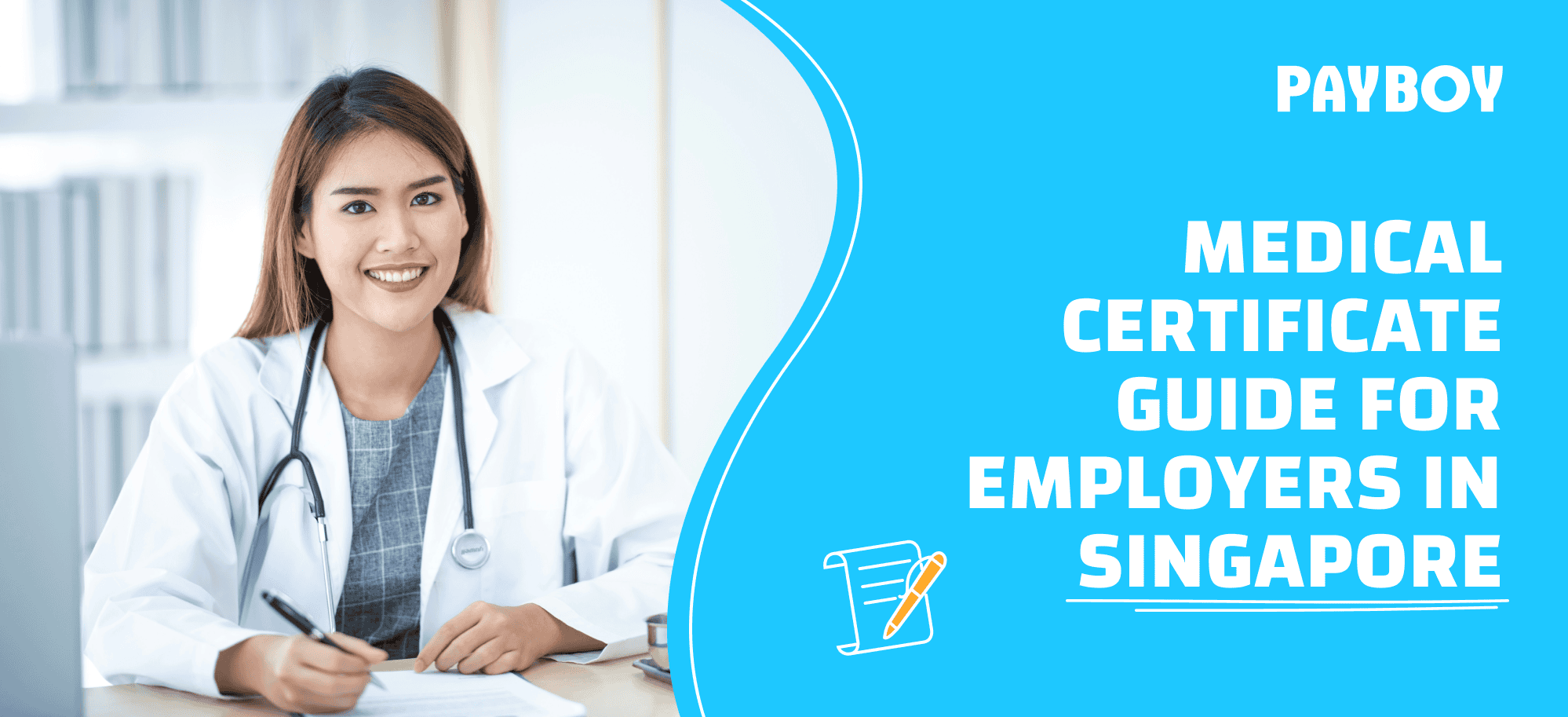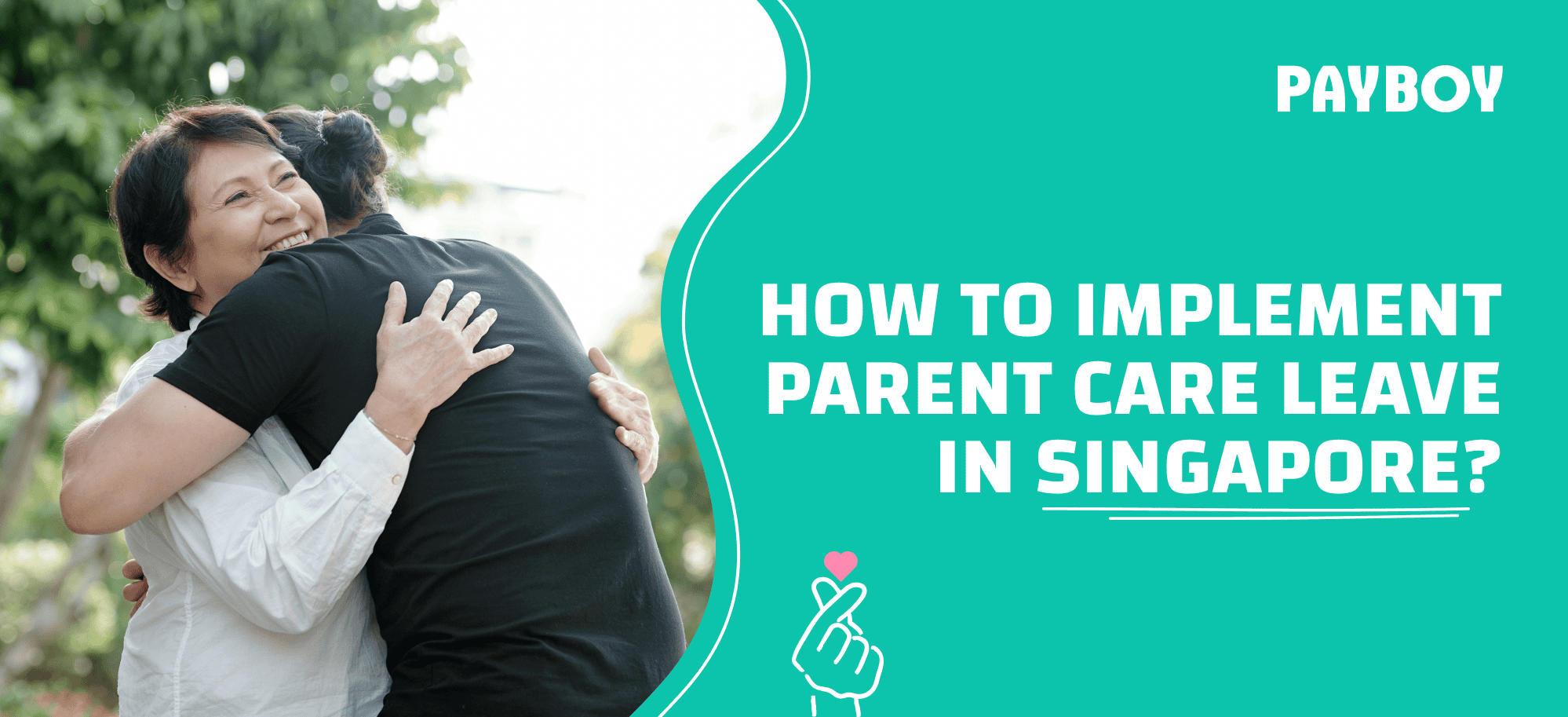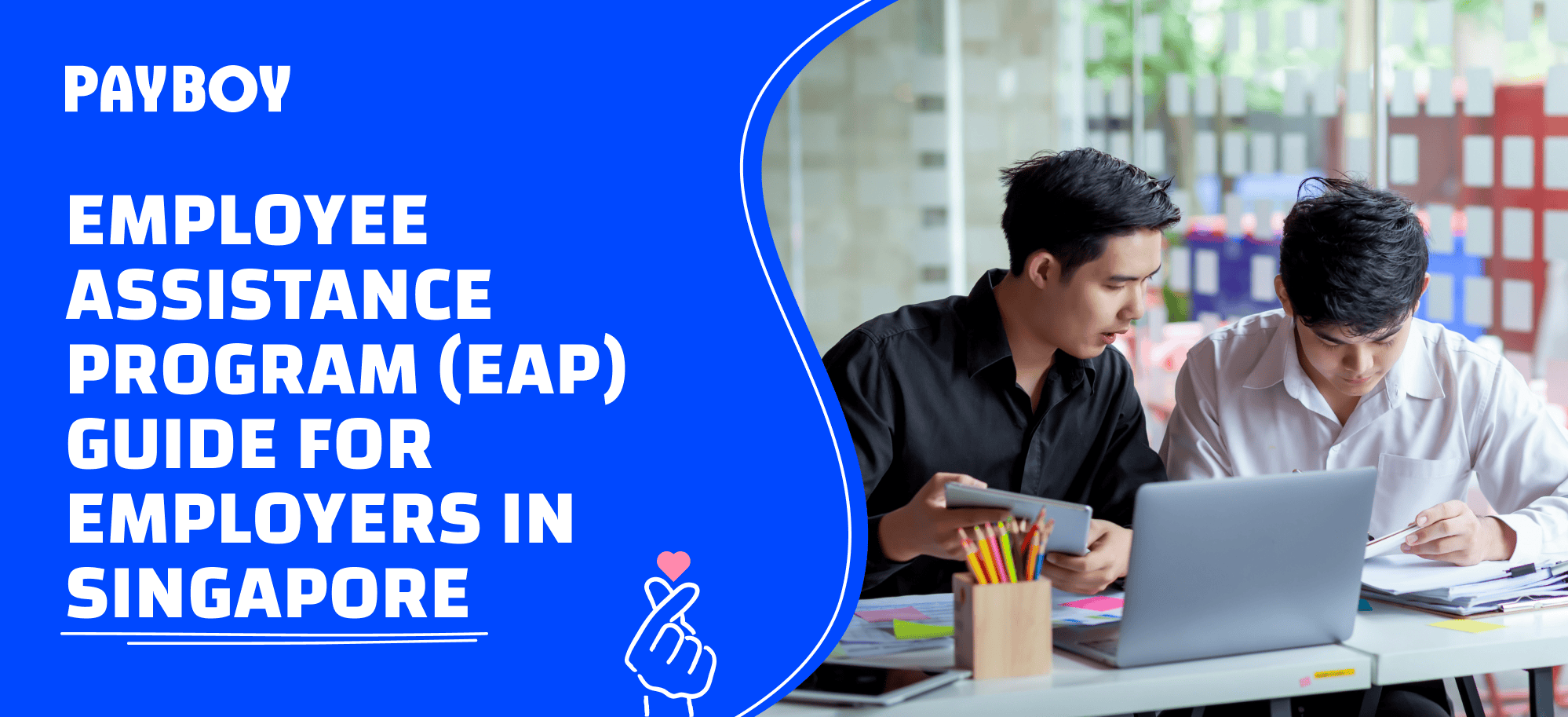When managing employee health and attendance, medical certificates play a crucial role in ensuring that both employers and employees are protected and informed. In Singapore, understanding the regulations and best practices surrounding medical certificates is essential for maintaining workplace fairness and compliance. This guide will walk you through everything employers need to know about medical certificates—from legal obligations to best practices on handling medical leave, ensuring that your company remains compliant while supporting your employees' well-being.
What is a medical certificate?
A medical certificate is an official document issued by a licenced medical practitioner that confirms an employee’s inability to work due to illness or injury. It typically outlines the nature of the illness, the recommended period of rest, and any specific instructions regarding the employee's return to work. In Singapore, a medical certificate is crucial for employees to be granted paid medical leave under the Employment Act.
How does a medical certificate validate medical leave?
A medical certificate serves as the official validation for an employee’s medical leave. It provides the necessary proof that the employee’s absence is due to legitimate health reasons. Employers use this certificate to process the employee’s medical leave, ensuring compliance with company policies and the Employment Act. Without this document, employers may not be obligated to grant paid medical leave, making it an essential part of the leave process.
What information does a medical certificate require?
A medical certificate is a formal document that serves as proof of an employee's medical condition and the need for time off work. To be considered valid, the certificate must include specific details:
- Employee’s full name: This identifies the individual for whom the certificate is issued, ensuring that it is correctly attributed.
- Date of examination: This indicates when the medical practitioner assessed the employee, establishing the timing of the diagnosis.
- Diagnosis or description of the medical condition: A brief but clear explanation of the health issue that justifies the employee's absence. While details may be limited due to privacy, it should be sufficient to support the need for leave.
- Period of recommended leave: The number of days the employee is advised to take off, ensuring they have adequate time to recover before returning to work.
- Date the employee is fit to return to work: This provides a clear timeline for when the employee is expected to resume duties, helping employers plan accordingly.
- Name, signature, and credentials of the medical practitioner: The healthcare provider's information validates the certificate, confirming that it was issued by a qualified professional.
What are some common scenarios where a medical certificate is required?
Medical certificates are often necessary in various workplace scenarios to justify an employee's absence due to health reasons. Some common situations where a medical certificate is required include:
- Acute illness or injury: When an employee is suddenly unwell or injured, making it impossible for them to perform their duties, a medical certificate is needed to confirm their inability to work and to justify their absence.
- Chronic conditions: Employees dealing with ongoing health issues, such as diabetes or arthritis, may require periodic time off to manage their condition. A medical certificate ensures that these absences are documented and understood by the employer.
- Surgical procedures: After undergoing surgery, employees often need a recovery period. A medical certificate specifies the required time off to ensure a full recovery before returning to work.
- Hospitalisation: When an employee is admitted to the hospital for treatment, a medical certificate is crucial for documenting the length of their stay and the necessary recovery time.
- Infectious diseases: In cases of contagious illnesses like influenza or COVID-19, a medical certificate not only justifies the employee's absence but also helps in preventing the spread of infection within the workplace.
What happens if an employee fails to submit a medical certificate for medical leave?
If an employee fails to submit a medical certificate, their medical leave may not be recognised by the employer. This could result in the leave being considered unpaid or even unauthorised, depending on company policies. Employers may treat the absence as a no-show or apply disciplinary measures if the absence is unexcused. It is therefore critical for employees to provide a medical certificate promptly to avoid such complications.
Other FAQs about medical certificates
Should employers give medical reimbursement after receiving an employee's medical certificate?
In Singapore, employers are required to reimburse employees for medical consultation fees if the medical certificate or examination is obtained from a government-accredited healthcare institution. This includes public hospitals and other institutions approved by the Ministry of Health.
Find out the list of public medical institutions determined in the MOM’s official website.
Are my employees required to submit medical certificates while on notice period?
Yes, employees are required to submit medical certificates during the notice period if they take medical leave. The notice period may be extended by the number of days the employee was on medical leave, depending on the terms of employment.
Are my employees required to submit medical certificates while being on probation?
Yes, employees on probation are also required to submit medical certificates if they take medical leave. The probation period might be extended if the employee takes a significant amount of medical leave during this time, subject to the employer’s discretion.
Can medical leave be taken without a medical certificate?
Generally, medical leave without a medical certificate is not recognised as valid. However, in certain circumstances, employers might accept other forms of documentation, such as a letter from a clinic or alternative medical evidence. This is typically handled on a case-by-case basis and should be clearly outlined in the company's leave policy.
Tip: Stay updated with the medical leave policy in Singapore with our comprehensive “Sick & hospitalisation leave” guide.
Why do some SMEs find leave management challenging?
Small and midsize enterprises (SMEs) often find leave management to be a pain point. Here are 2 key reasons:
- SMEs don’t have the same HR resources as larger businesses. As a result, they often have to rely on manual leave processes, which can be both time-consuming and error-prone.
- SMEs often have a more limited pool of employees to choose from when someone goes on leave. This can lead to disruptions in workflow and decreased productivity.
How to simplify medical leave tracking with Payboy’s leave management system?
If leave isn't managed properly, it can have a negative impact on productivity and morale. Therefore, good leave management software is an essential tool for any business that wants to keep on top of its leave entitlements and ensure that its employees are getting the rest they deserve. Here are some benefits of using our leave management module:
- Manage leaves digitally
Our leave management software is designed to streamline the leave process, making it easy for employees to apply for leave and check leave balances, as well as for employers to approve and manage leave requests.
Employees can also easily submit supporting documents or medical certificates via the mobile app so that all the documents are stored in a central database. No more missing documents!
- Syncs seamlessly with shift scheduling and payroll
Shift scheduling and payroll calculation can be time-consuming and stressful while managing different leave requests. With Payboy HR software, it automatically updates the employee’s availability in Shift Scheduling and also calculates encashed or unpaid leave in the Payroll module when leaves are approved. We've got it covered.
- Customise the leave policy that best fits your business needs
We'll start you off with a setup that's compliant to MOM requirements, but we'll be happy to help you update it to a leave policy that works best for your business needs. Check out how to customise settings for each leave type with Payboy, including sick leave! Our sick leave type is updated automatically in accordance with MOM’s latest change of policies and regulations.
Our Payboy Support Centre also helps to address most of the FAQs regarding other statutory leave entitlements asked by our customers:
Streamline your HR processes with Payboy today!
As a PSG-approved HRMS, Payboy provides a robust system to help you manage your HR tasks so that you can focus on your business and people!
With our wide range of modules, you can customise a solution to meet the specific needs of your business:
Payroll Processing | Leave Management | Claims Management | Applicant Tracking
Time Attendance | Shift Scheduling | Appraisal System | Inventory ManagementProject Costing | Training Management | Benefits






















